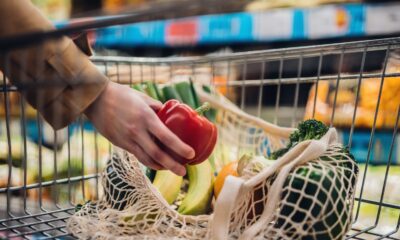Other News
World Animal Day: Does Germany champion animal protection?
A white-handed gibbon, native to the tropical rainforests of Southeast Asia and critically endangered, typically sells for around €13,000 ($15,250) on the black market. One such gibbon, named “Jimmy,” had spent months confined to a small cage and forced to wear a diaper. His planned handover was set to take place in a supermarket parking lot in Pforzheim, southern Germany. But instead of a buyer, the seller was met by police — tipped off by Jana Hoger, a PETA (People for the Ethical Treatment of Animals) activist posing as a customer.
Hoger points to a troubling legal loophole: “There’s a thriving black market for trading protected species. Exotic animals are openly advertised in WhatsApp groups and at pet fairs — even those strictly protected in their countries of origin. Because Germany doesn’t recognize their protected status, these animals can be sold legally here, despite having been smuggled out illegally in the first place.”
October 4 is World Animal Day — and in 2025, Germany marks a special milestone: the 100th anniversary of its observance. This centennial brings renewed attention to cases like Jimmy’s, the gibbon whose prolonged captivity led to severe behavioral disorders. Yet Jimmy’s story is just one example. The illegal trade in exotic animals such as monkeys, snakes, and lizards continues to thrive.
At the same time, the overwhelming demand for more familiar companions — Germany is home to over 15 million cats and 10 million dogs — poses its own set of challenges, with consequences that extend far beyond the pet market.
Online trade in animals is booming
“Every month, an estimated 17,000 to 20,000 puppies appear on online platforms across Germany,” Hoger told DW. “For dealers and criminal networks, it’s a booming business. Many of these animals are bred under appalling conditions in Eastern Europe and other regions before being transported here.” She added that forged documents are now widespread, making it increasingly difficult for ordinary buyers to recognize when they’re unknowingly participating in illegal trade.
Silvia Breher, Germany’s newly appointed Federal Commissioner for Animal Welfare, has only been in office for five weeks — but the challenges ahead are already mounting. She recognizes the weight of her role, especially given that animal welfare has been enshrined in the German constitution since 2002. In a statement to DW, Breher emphasized: “To protect our companion animals, we urgently need to ban public animal trading and anonymous online sales.”
“We also urgently need to ease the strain on our overcrowded animal shelters,” she went on to say.
Germany is home to roughly 1,400 animal shelters, many of which have been stretched to their limits since the COVID-19 pandemic. The new coalition government of the center-right Christian Democratic Union/Christian Social Union(CDU/CSU) and the center-left Social Democratic Party (SPD) had promised €80 million in support.
However, budgetary pressures appear to have reached animal welfare too: not a single euro has been earmarked for shelters in the 2025 federal budget, says Lea Schmitz, spokesperson for the German Animal Welfare Federation.
“Most shelters are operating at full capacity and are in desperate need of funding,” Schmitz told DW, adding “It’s a dire situation, especially when there’s nowhere else for these animals to go.”
Criticism of Agriculture Minister Alois Rainer
Many animal welfare groups fear that Germany is backtracking on its commitments. Much of their criticism is aimed at the new Agriculture Minister, Alois Rainer, a CSU politician and trained butcher, whose ministry oversees animal welfare. Rainer recently stirred controversy by claiming there is no link between climate protection and meat consumption.
Silvia Breher’s appointment as Animal Welfare Commissioner has also faced criticism, despite her having only recently taken office.
“Silvia Breher also serves as a Parliamentary State Secretary, representing the Federal Minister directly. That means she isn’t independent, even though independence is a core requirement for the role of Animal Welfare Commissioner,” Schmitz said. “As a CDU member of parliament, she votes on the very legislation she’s expected to assess in her commissioner role.”
On January 1, 2022, Germany became the first country in the world to ban the killing of male chicks — a landmark move championed by animal welfare organizations. However, advocates say that was just a starting point. To truly realize the constitutional promise of animal protection, they’re now calling for broader reforms, such as mandatory neutering of stray cats, a ban on transporting animals to non-EU countries, and a drastic reduction in animal testing.
Conversion to organic farming is stalling
Julia Weibel, PETA’s specialist for animals in the food industry, calls for a fundamental rethink of how farm animals are treated. She highlights disturbing breeding practices on some farms: “Holstein Friesian cows are bred to channel nearly all their energy into milk production, leaving their bodies severely emaciated. Piglets are engineered to gain at least 500 grams a day, with extra ribs bred in to maximize meat yield. Chickens grow at speeds that are entirely unnatural — and dangerously unhealthy.”
Germany is working toward a target of 30% organic agriculture by 2030. However, by the end of 2024, it had only achieved 11.5%. The goal implies more humane animal husbandry, including more space in barns and pastures, and adequate outdoor access. Former Agriculture Minister Cem Özdemir of the Green Party had launched a funding program to support the transition to animal-friendly housing. But his successor, Rainer, is letting the program expire.
“If we were genuinely planning for future generations, we’d be cutting back on livestock numbers,” Weibel said. “As the Agriculture Ministry’s scientific advisory board recently recommended, meat and dairy alternatives should benefit from lower taxes and better market access to help make our diets more sustainable.”
This article was originally written in German.
While you’re here: Every Tuesday, DW editors round up what is happening in German politics and society. You can sign up here for the weekly email newsletter, Berlin Briefing.





